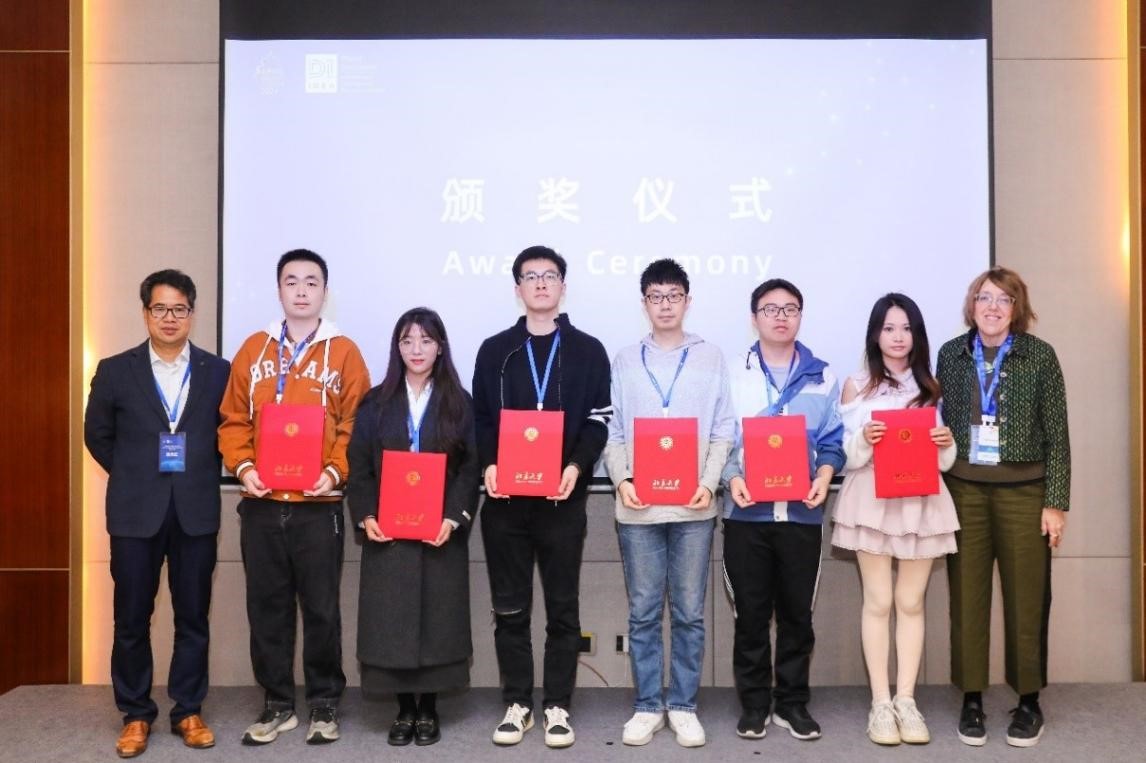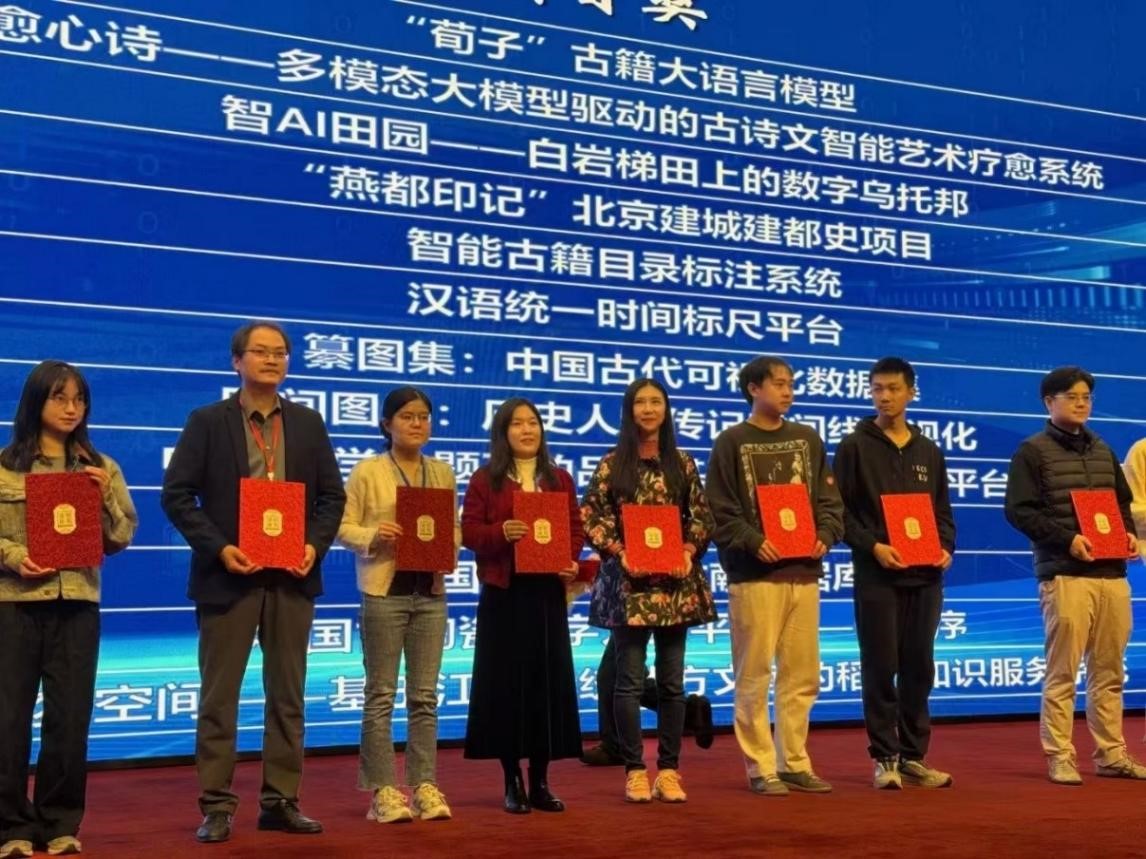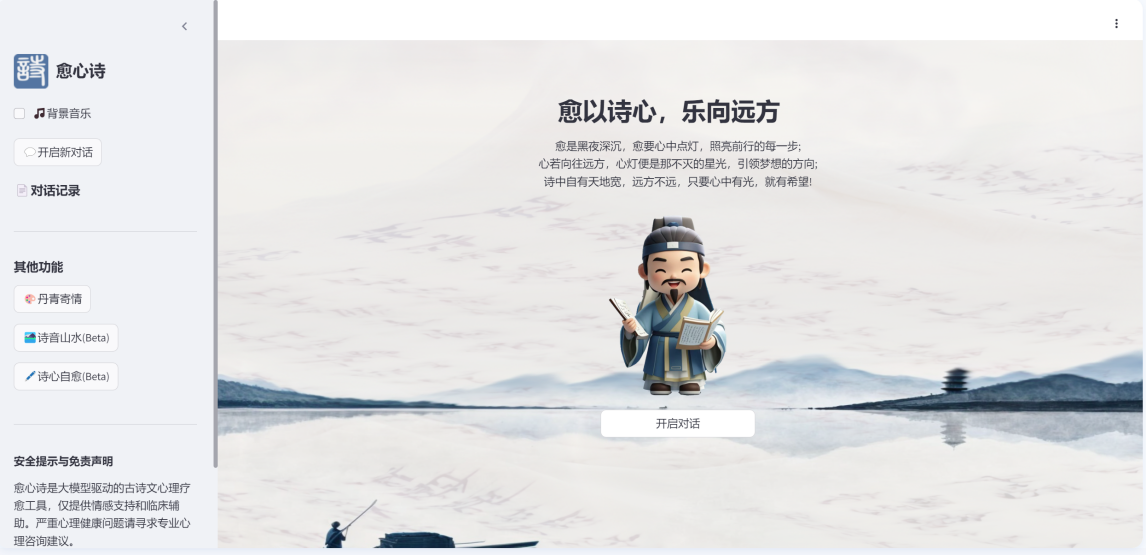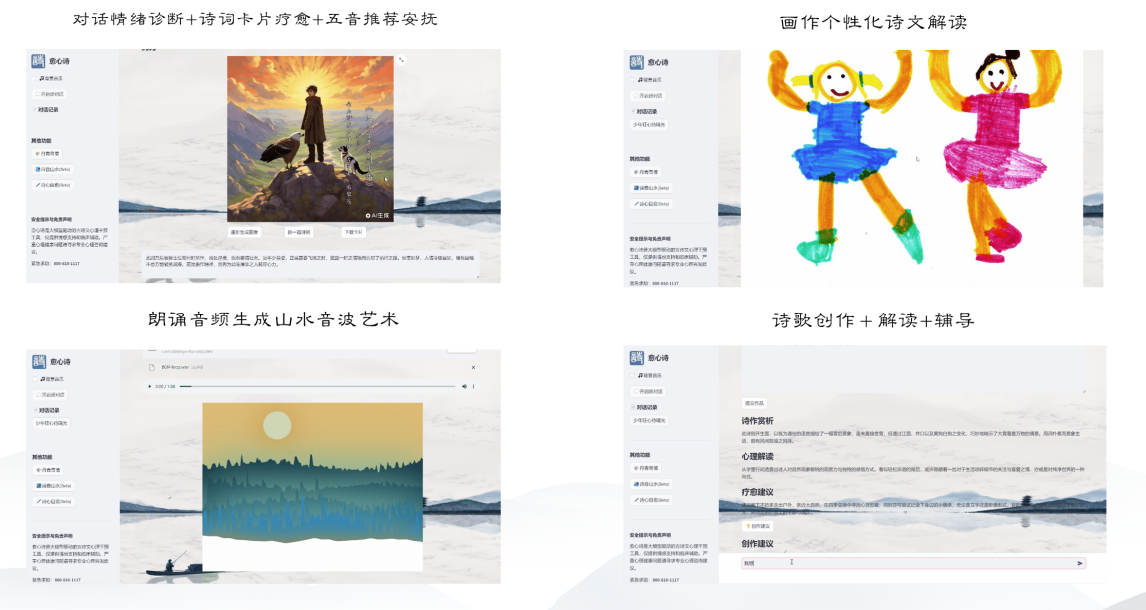On November 3rd, the finals of the first Global Digital Intelligence Education Innovation Contest concluded at Peking University. The project Poetry for Healing the Mind – A Multi-modal Large Model-driven Smart Art Therapy System for Ancient Poetry developed by a team led by Yangming Zhang and Bin Wu, along with Changhua Wu and Yufei Chen, won the Bronze Award in the Application Development Track. This project also received an Excellent Project Award in the AIGC category at the selection of outstanding projects during the 6th China Digital Humanities Annual Conference (CDH2024) on November 10th.


Yangming Zhang is a doctoral student in the Publishing and Distribution program at our School, Bin Wu is a doctoral student at Korea University, Changhua Wu is a master’s student at the Academy of Arts & Design, Tsinghua University, and Yufei Chen is a doctoral student at the School of Philosophy, Wuhan University.
Based on current social mental health trends, this project leverages the aesthetic and therapeutic value of traditional Chinese poetry, innovatively integrating traditional poetry culture with modern artificial intelligence technology to create a smart system that combines poetry therapy, art creation, and psychological counseling. The system provides an immersive poetry therapy interaction platform through multi-sensory experiences that integrate visual and auditory elements. Its core functions include matching poetic scenarios with emotional guidance based on large language models, intelligent assistance for ancient poetry composition, and multimodal artistic translation of poetry into images and sounds. It not only meets individuals' daily psychological therapy needs but can also serve as an auxiliary tool for professional psychological interventions, offering a unique solution for the digital transformation of ancient poetry utilization and the art therapy industry.

The main interface of the application

Function interfaces
The Global Digital Intelligence Education Innovation Contest was jointly initiated by Peking University and nearly 30 universities worldwide under the Digital Intelligence - International Development Education Alliance (DI-IDEA) to address new opportunities and challenges brought about by the digital intelligence era to global higher education. The Contest set five tracks: Sustainable Development and Cultural Preservation, Application Development, Space Information, Life Sciences, and Materials Science. It attracted over 1,100 participants from more than 100 universities both domestically and internationally. After three months of intense Contest, 58 excellent projects entered the finals. The Application Development Track encouraged contestants to freely imagine and combine AI's new technologies and capabilities with real-world scientific research scenarios, constructing innovative and valuable AI for Science software applications.